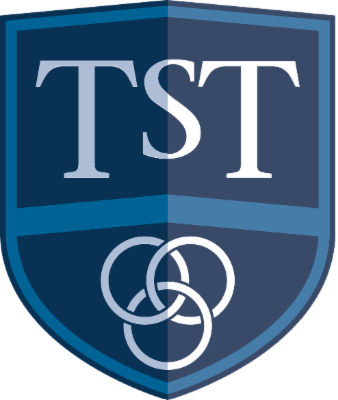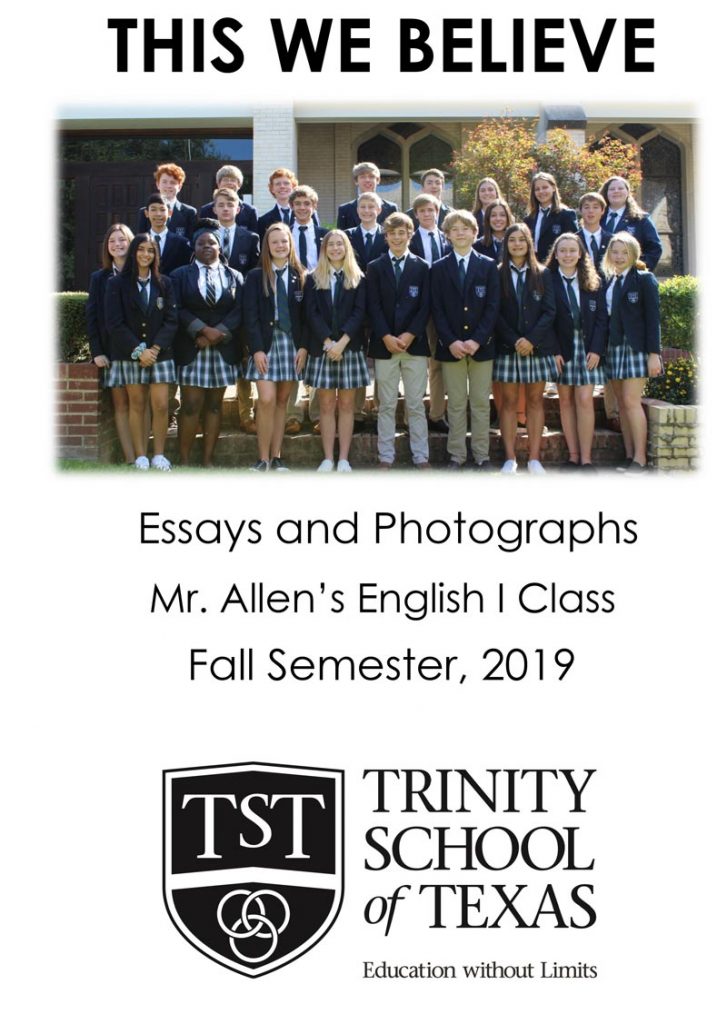Shortly before I left Gilmer High School eight years ago to return to Trinity, I stumbled upon a book titled Class Pictures (Dawoud Bey, available at aperture.org). It was a pictorial documentary of inner city students in San Francisco and New York; the selected students posed for a professional photographer and were asked to write something about themselves. I found the photos and the accompanying writing nothing less than haunting: one student who had recently lost a friend to gang violence, wrote, “I wish I could have my friend back. That’s why I try to keep my mind focused on positive stuff, such as school, so I can get the best grades I can get…” His picture suggests, however, that he could possibly never get over the loss of his friend.
Fast forward a few years later when the cover story of Time dealt with teenage depression; psychologists suggested that the best way they had seen to combat depression was for teens to read writings of those a bit older than they in which they described that they, too, dealt with depression, however content and “successful” they outwardly appeared. And what proved to be most effective for teens was reading how those older than they dealt with depression and sadness and disappointment.
It is common for all of us to think we are the only ones occasionally experiencing a lack of self-confidence or allowing negativity to skew our thinking. During down times, it is easy to believe that others are going about their business with no problems. Simply knowing that others frequently deal with the same feelings we experience is somewhat of a comfort and it is even more of a comfort to learn how others deal with adversity and low self-concept. It shocks us to know that a gifted comedian like Robin Williams or an outwardly “invincible” actor like Dwayne “the Rock” Johnson could be overwhelmed with depression. I can only imagine how the students we teach feel ill-equipped to deal with depression and low self-concept.
These experiences and observations of mine came into play when I began teaching Advanced Placement English here at Trinity. I learned that I was responsible for teaching the rhetorical analysis; the rhetorical analysis discusses HOW an effective piece of writing conveys its mood, establishes tone, employs sentence variation, utilizes repetition and vivid diction—and even can define how punctuation can impact its message. Students first learn the vocabulary of analysis—terms like polysyndeton, rhetorical shift, and epistrophe must be mastered—to be able to speak the rhetorical language for analysis. On the AP Language and Composition Exam, students are given a difficult passage—perhaps a presidential inaugural speech, an impassioned plea from Nelson Mandela, or a persuasive essay for women’s suffrage in the early 20th century—to analyze. However, I initially experienced only mixed success with my students writing rhetorical analyses over such pieces. It was difficult to keep my students’ motivation high writing about pieces that seemed to them to be so distant, so obscure, and in many cases, so unrelatable. As a result, I felt that students would be more motivated and more successful composing a rhetorical analysis over something more relatable and, after my experiences described earlier, what could, I concluded, be more relatable than the writings of their own peers?
As a result, students were assigned each year to compose an essay for publication in three separate compilations; freshmen students composed personal life philosophies in their THIS WE BELIEVE booklet, a collection inspired by the NPR program THIS I BELIEVE and its companion book, THIS I BELIEVE, which is the summer reading assignment for freshmen; the sophomores recounted personal experiences which impacted their value systems in their STORIES OF SIGNIFICANCE booklets; mindful that the juniors will have to respond to a prompt in the argumentative essay on the AP Language and Composition exam they take in May, they are asked to respond to a memorable quote they choose from goodreads.com/quotes and compose an essay for their TST QUOTABLES booklet. Students then select a peer’s essay to annotate and over which they eventually compose a rhetorical analysis.
A couple of school years ago, I had our juniors also compile writings to place in a publication which attempted to provide underclassmen with specific strategies to cope with depression and sadness and disappointment. Students find such writings of their peers so much more relatable and certainly take their peers’ messages to heart. I felt also that students privately reading about the personal struggles of their classmates with depression and sadness had a profound impact on all involved and made dealing with such struggles not a source of embarrassment and instead, a means of therapy.
This reliance upon peer writing, particularly in teaching a rhetorical analysis, was the subject of a workshop TST Headmaster Gary Whitwell and I provided two summers ago at the College Board’s Advanced Placement National Convention in Houston. Such reliance upon peer writing now serves as a cornerstone of my TST Upper School curriculum.
The three booklets, THIS WE BELIEVE, STORIES OF SIGNIFICANCE, and TST QUOTABLES, are available for viewing in the TST main office for any who are interested or click below.
Edward Allen
Upper School English Instructor

 Login
Login







